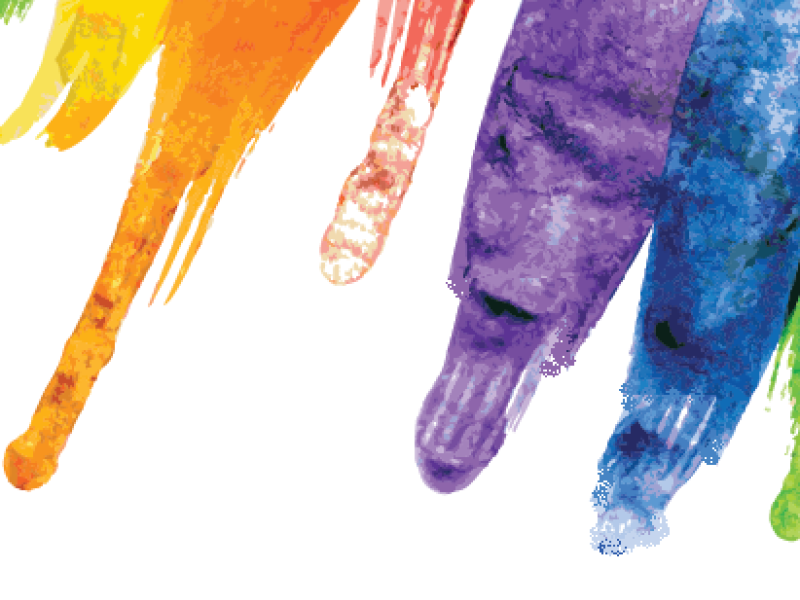New data from Mind Australia shows that the Rainbow Recovery program is significantly improving the mental health and wellbeing of young LGBTIQA+ people.
In Rainbow Recovery, young LGBTIQA+ people experiencing mental health and wellbeing concerns work together with a trained facilitator to develop and participate in Youth Mind Recovery College® learning modules.
The Rainbow Recovery program is based on the award-winning Mind Recovery College model, where people choose from a suite of mental health and wellbeing courses designed to address their needs.
Content is co-designed, and primarily delivered by peer facilitators who use their mental health lived experience to inform their teaching. Currently, Rainbow Recovery is delivered in north-east Victoria and Bendigo.
An evaluation conducted with young people before accessing the program found that more than 90 per cent of respondents had never received mental health support that was relevant to them as an LGBTIQA+ person.
The same young people were asked how they rated particular areas of their life using a five-point scale after accessing Rainbow Recovery. The data showed that Rainbow Recovery helped them:
- make meaningful social connections (4.0/5) connect and
- feel like they belonged to community (4.2/5)
- increase their knowledge and skills as an LGBTIQA+ person (4.0/5)
- develop self-acceptance as a LGBTIQA+ person (4.1/5), and
- improve their mental wellbeing (3.9/5).
Rainbow Recovery Project Lead Shay Eliot said the program is developed and delivered by people who understand the issues faced by young LGBTIQA+ people.
“Rainbow Recovery creates opportunities to address barriers to participation by providing support, connection and a safe space to think about and discuss LGBTIQA+ topics. It provides a practical solution to alleviating isolation and supporting self-acceptance, self-efficacy, confidence and empowerment,” they said.
Although many LGBTIQ+ Australians live healthy and happy lives, research has shown that a disproportionate number experience poorer mental health outcomes and have higher risk of suicidal behaviours than their peers. These health outcomes are directly related to experiences of stigma, prejudice, discrimination and abuse on the basis of being LGBTIQ+.
“Young people who are exploring their sexuality and/or gender identity often report feeling isolated and unsafe, especially in rural or regional areas. Rainbow Recovery is designed for them,” Shay said.
Lee (name changed) said the program helped them learn how to communicate and express themselves.
“It was validating to talk about my gender identity and chat about ways to talk to my family about my concerns,” they said.
Rainbow Recovery is funded through Future Healthy: The Big Connect – an integrated health promotion initiative by VicHealth.
For information on Rainbow Recovery visit the Mind Australia website, or contact us via Mind Connect: 1300 286 463.
If this article raises concerns for you, please call Lifeline on 13 11 14. Aboriginal and Torres Straits Islanders can also call 13 YARN (13 92 76) a 24/7 national crisis support telephone service staffed by Aboriginal and Torres Strait Islander peoples.
